The Ultimate Guide to Choosing the Best Skill Development Training Institute
Understanding the Importance of Skill Development Training
In today’s rapidly evolving job market, skill development training has become a critical component for both personal and professional growth. The gap between academic education and industry requirements is widening, making it essential for individuals to seek continuous learning opportunities. Traditional education often provides foundational knowledge but may fall short in equipping students with the practical skills required by employers. This discrepancy underscores the importance of skill development training as a bridge to fill the gap and meet the demands of the modern workplace.
Continuous learning and skill acquisition play a pivotal role in career advancement. As industries evolve and new technologies emerge, the skills once deemed sufficient may become obsolete. Staying competitive requires an ongoing commitment to learning and adapting. Skill development training programs offer structured paths to acquire new competencies, thereby enhancing employability and opening doors to new career opportunities. For instance, learning advanced data analytics can significantly boost a marketing professional’s ability to make data-driven decisions, thus increasing their value to employers.
Moreover, skill development training provides numerous benefits beyond improved employability. It fosters a growth mindset, encourages lifelong learning, and enhances problem-solving abilities. Individuals who continuously seek to improve their skill sets are more likely to innovate and excel in their roles. This proactive approach also builds confidence, enabling professionals to tackle challenges more effectively and take on leadership positions.
Real-life examples and statistics further highlight the tangible impact of skill training on career success. According to a report by the World Economic Forum, 50% of all employees will need reskilling by 2025 as the adoption of technology increases. Another study by LinkedIn Learning revealed that professionals who engage in regular skill development are 39% more likely to feel productive and successful in their roles. These figures demonstrate the undeniable importance of skill development training in maintaining a competitive edge and achieving long-term career success.
Key Factors to Consider When Choosing a Skill Development Training Institute
Choosing the right skill development training institute is pivotal for career advancement and personal growth. Several critical factors should be meticulously evaluated to ensure you select an institute that aligns with your career goals and learning needs.
Firstly, accreditation and certification are fundamental. An accredited institute guarantees that its training programs meet industry standards and are recognized by employers. Certification from a reputed organization not only adds credibility but also enhances your employability. Look for institutes that have affiliations with recognized bodies and offer globally accepted certifications.
The expertise and experience of the instructors play a significant role in the quality of training. Instructors with extensive experience and a strong professional background bring valuable industry insights and practical knowledge. Research the qualifications and professional experiences of the teaching staff to ensure they can provide the guidance and mentorship you need.
The relevance and quality of the curriculum are also paramount. The curriculum should be up-to-date with current industry trends and technologies. Review the course content to ensure it covers all essential topics comprehensively and includes the latest advancements in the field. Additionally, practical sessions and hands-on training are crucial for applying theoretical knowledge in real-world scenarios. Institutes that offer ample lab sessions, workshops, and project-based learning opportunities should be prioritized.
Industry partnerships and placement assistance are essential indicators of an institute’s commitment to student success. Strong industry ties can facilitate internships, live projects, and job placements. Investigate the institute’s placement records and the success stories of its alumni to gauge its effectiveness in helping students secure relevant employment.
Assessing the institute’s infrastructure is another key aspect. A well-equipped institute with modern facilities, access to the latest tools and technologies, and a conducive learning environment significantly enhances the training experience. Additionally, consider the availability of both online and offline learning options to ensure flexibility in your learning journey.
In conclusion, a thorough evaluation of these factors will provide a clear roadmap to identify the best skill development training institute that meets your career objectives and learning preferences. By making an informed decision, you can embark on a successful and fulfilling career path.



